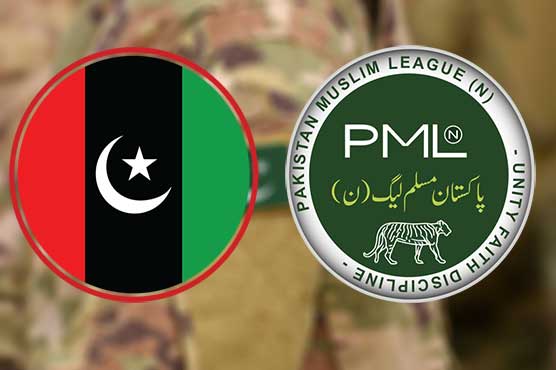High-Level Meeting to Address Political Tensions
Islamabad: A crucial meeting between Pakistan Peoples Party (PPP) and Pakistan Muslim League-Nawaz (PML-N) has been scheduled today at the Foreign Office to resolve ongoing political tensions and mutual criticisms.
According to sources, the PPP delegation will first meet Foreign Minister Ishaq Dar, followed by a joint session with the Prime Minister alongside PML-N leaders. The primary goal is to end differences and reach a consensus on future political strategies.
PPP Forms Senior Delegation
The PPP has constituted a high-level delegation for this meeting, including senior leaders Raja Pervez Ashraf, Sherry Rehman, Nayer Bokhari, and Nadeem Afzal Chan. Discussions are expected to focus on Punjab-related concerns and local government elections, which have been points of contention between the two parties.
These talks come amid heightened political rhetoric, particularly following remarks by Punjab Chief Minister Maryam Nawaz, who indirectly criticized the PPP leadership in a recent speech. In response, Sindh Information Minister Sharjeel Inam Memon sharply criticized the Punjab government, further escalating tensions.
Presidential Intervention and Preliminary Discussions
Given the rising political strain, President Asif Ali Zardari tasked Interior Minister Mohsin Naqvi with mediating between the two parties. Subsequently, Naqvi held a meeting with the Prime Minister to discuss possible solutions.
Following this, a PML-N delegation met with PPP leaders at Nodero, where both sides agreed on dialogue as a means to reduce tension and resolve outstanding issues. These preliminary discussions paved the way for today’s more formal meeting at the Foreign Office.
Stakes for National Politics
Political analysts view today’s meeting as a critical step toward restoring cooperation between Pakistan’s two major political parties. While the immediate agenda includes resolving disagreements over Punjab governance and upcoming local elections, the broader implications could impact policy-making, legislative cooperation, and political stability nationwide.
The outcome may also influence alliances ahead of future electoral cycles and affect public perception of party unity. Both parties appear committed to presenting a united front publicly, signaling an interest in reducing political polarization.
Moving Forward
Observers emphasize that the success of today’s discussions depends on mutual concessions and a willingness to prioritize national stability over partisan interests. A resolution could set a precedent for handling political disagreements through structured dialogue rather than public confrontation.
With both parties sending senior representatives and engaging in multiple rounds of preliminary talks, today’s meeting at the Foreign Office is being closely watched by political stakeholders and media alike.















